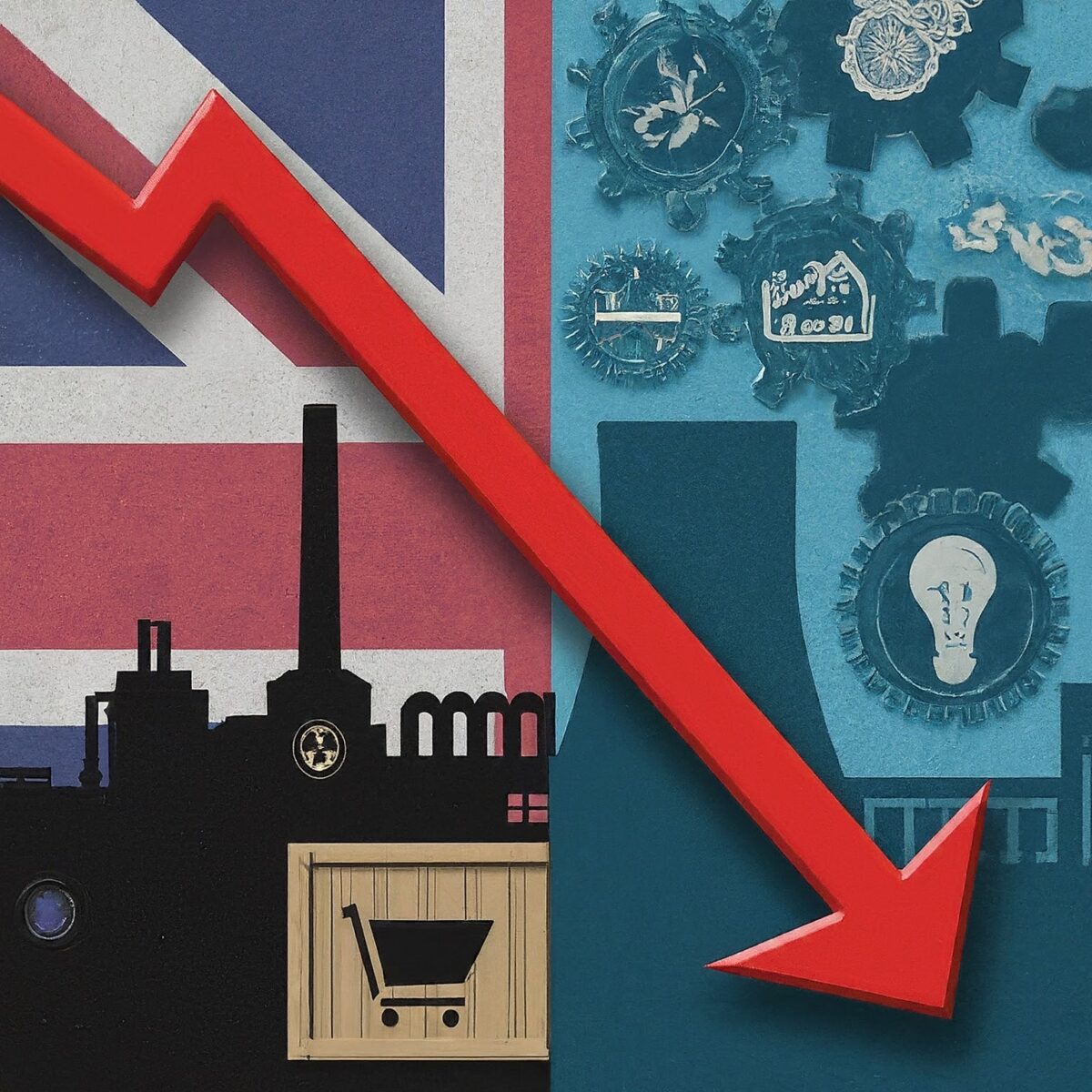9 Key Takeaways for UK Business Leaders from UK Manufacturing Decline (S&P Global/CIPS PMI)
The latest S&P Global/CIPS UK Manufacturing PMI survey for reveals a continuation of the volatile performance seen earlier this year. While some positive signs remain, understanding the current challenges is crucial for UK business leaders navigating this uncertain environment. Here are 9 key takeaways:
1. Renewed Downturn: Despite a promising March, the PMI reading of 49.1 in April indicates a renewed contraction in manufacturing output and new orders. This fragile recovery highlights the sector’s vulnerability to internal and external pressures.
2. Multifaceted Challenges: The report identifies several factors contributing to the decline, including:
- Weak Market Confidence: Businesses report a cautious approach from both manufacturers and clients, hindering new work inflows.
- Client Destocking: Businesses are reducing inventories, indicating a lack of confidence in future demand.
- Red Sea Disruptions: Ongoing issues in the Red Sea are causing shipment delays and impacting supply chains.
3. Global Downturn: The decline in export orders for the 27th consecutive month points to a broader global slowdown impacting UK manufacturers.
4. Cost Pressures Mount: Input price inflation reached a 14-month high, squeezing profit margins and forcing manufacturers to be cost-conscious.
5. Employment Impact: The downturn is leading to cutbacks in employment, impacting livelihoods and potentially hindering future growth.
6. Uneven Performance: While the overall PMI indicates contraction, some sub-sectors might be experiencing less severe downturns or even slight growth. Investigate sector-specific data for a more nuanced picture.
7. Pockets of Optimism: Despite the challenges, over half of manufacturers surveyed remain optimistic about a future output increase. This optimism is likely fueled by:
- Hopes for Demand Revival: Businesses anticipate an eventual improvement in market conditions and a rise in demand.
- New Product Launches: Innovation and new product offerings could drive future growth.
- Efficiency Gains: Manufacturers are focusing on process improvements to offset cost pressures and enhance competitiveness.
8. Need for Resilience: Business leaders need to build resilience into their strategies. This includes:
- Diversification: Exploring new markets and customer segments to reduce reliance on specific regions or industries.
- Supply Chain Optimisation: Building a more robust and geographically diverse supply chain to mitigate disruptions.
- Innovation: Investing in R&D and new product development to stay ahead of the curve.
9. Collaboration is Key: Industry bodies and government agencies can play a role by:
- Advocating for supportive policies: Measures to address rising costs and ease supply chain bottlenecks.
- Facilitating collaboration: Encouraging knowledge sharing and joint ventures among manufacturers to navigate challenges.
By understanding these key takeaways and taking proactive measures, UK business leaders can navigate the current manufacturing decline and emerge stronger. Remember, the PMI is a forward-looking survey, and business sentiment can shift quickly. Stay informed about future reports and economic developments to adapt your strategies accordingly.
Get help to protect and grow your business
Subscribe for free business risk alerts and risk reviews
Read more business risk management articles

Business Risk Management Club